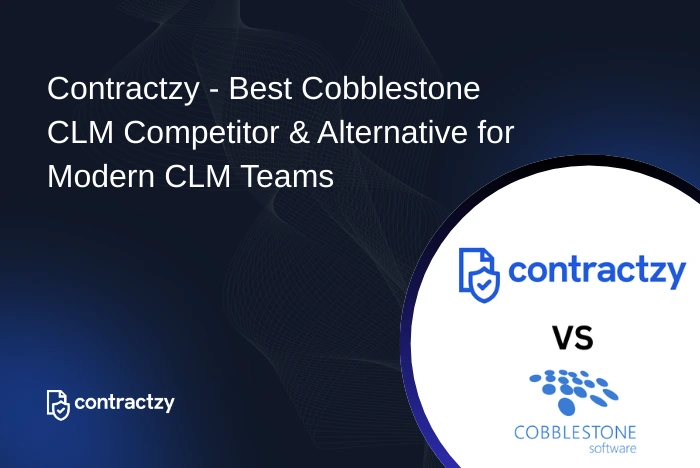%20(2).webp)
Parties Clause – Why the Right Parties Need to be Identified
When writing a contract, most believe that the most important bits are the commercial terms; scope, payment, duration. But any experienced lawyer will advise you that even the best deal can go belly-up if you get one thing wrong at the beginning: the parties clause.
Too often overlooked or skimmed, the parties clause does more than simply introduce the persons or entities who are signing the contract. It creates the legal foundation for enforceability, liability, and clarity. So why is it so crucial to identify the proper parties? Let's find out below.
What is the "Parties Clause"?
The Parties Clause is the section of a contract that tells you who the contract is between. It is typically located at the front and states something like:
"This Agreement is dated (Date) between and among ABC Technologies Private Limited, a private company incorporated under the Companies Act, 2013, having its registered office at (Address) (hereinafter 'ABC'), and EFG private limited, an individual at (Address) (hereinafter 'the Company').
Simple? Yes. But every word has meaning and implications under the law.
Why It's So Important to Call the Right Parties
1. Enforceability
A contract can only be enforced against parties to whom you give their legal name. If you give the incorrect legal party (or informally organized group not recognized legally), you may not be able to enforce the contract at all.
Example:
You enter into a contract with "TechWorld," which you believe to be "TechWorld Solutions Pvt Ltd." By luck, the real business entity is "TechWorld India Pvt Ltd." If there is a dispute, you might not have any right against the real company.
2. Proper Legal Personality
Contracting entails contracts being between legal parties either individuals or legally capable parties to contract.
- Sole proprietorships do not have separate legal personality.
- Partnerships can be required to be registered or have certain partners represent them.
- Trusts function through trustees.
- Companies should be named based on their incorporation data.
- Advice: Double verify business registration documents or public records (e.g., MCA in India) to ensure accurate legal names.
3. Liability Clarity
Referring to the right party informs you of who is responsible if something happens to go awry. This is important for enforcement, indemnity, damage, and dispute resolution.
Example:
Suppose you have entered into a contract with "XYZ Holdings," but the services are provided by its subsidiary "XYZ Services Pvt Ltd." If you have not specified the correct service provider, it can disclaim liability and you will have no recourse.
4. Avoids Disputes Surrounding Identity
Party name confusion results in conflicts. Is "John Smith" the John Smith of Delhi or Mumbai's? Is "BrightEdge" an American software firm or a local dealer with the same name?
Use distinctive identifiers:
- For Individuals: Add full legal name, ID proof reference, and address.
- For firms: Registered name, CIN (Company Identification Number), and registered address.
Best Practice Guidelines to Drafting the Parties Clause
Do
- Use the name registered on documents.
- State the legal status (e.g., LLP, Pvt Ltd, Inc., Sole Proprietor).
- State country of incorporation (especially for cross-border agreements).
- Include registered address.
- Use defined terms (e.g., "ABC" or "Company") for clarity in the remainder of the contract.
Don't
- Use trading names or nicknames.
- Assume parties know who is meant.
- Omit jurisdiction or incorporation details.
- Insert unauthorized or unrelated individuals/entities.
Red Flags to Watch Out for
- Businesses operating under an unregistered business name rather than their legal name.
- Unauthorised individuals signing agreements (especially in big firms).
- Using vague entity names like "Group," "Holding," or "Global" without definition.
- To a team, department, or brand as opposed to the legal entity itself.
Last Words
Don't underplay the significance of an opening clause in a contract. The Parties Clause is straightforward, but it is the gateway to everything that comes next. Get it right, and all else has the legal framework to hold up. Get it wrong, and even the most favorable deal can come apart.
Up next in the series: Week 2: "Recitals Clause – Purpose and how it sets context"








.webp)